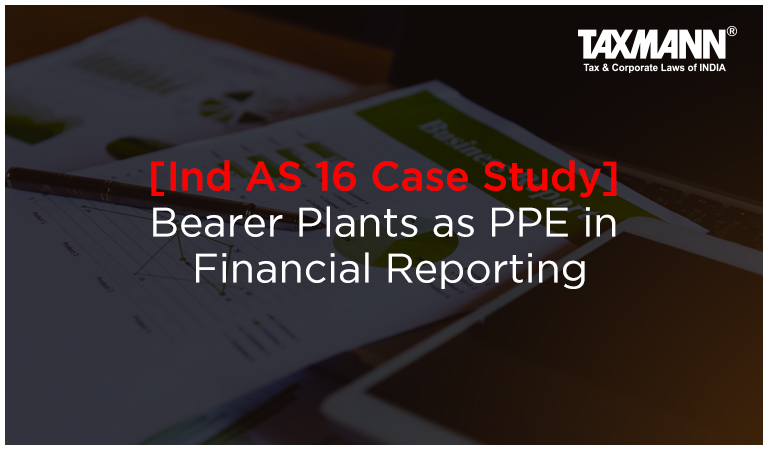[Ind AS 16 Case Study] Bearer Plants as PPE in Financial Reporting
- Blog|News|Account & Audit|
- 2 Min Read
- By Taxmann
- |
- Last Updated on 11 May, 2023

A company acquired the assets and liabilities of a unit of another company under a reorganisation scheme against the cash consideration. Acquired assets include orchards in complex which comprises 1658 fruit-bearing trees of different varieties. At the time of the acquisition of the unit, the company follows Accounting Standards for bookkeeping. Later with the adoption of Indian Accounting Standards, the company used the same accounting policies in its opening Ind AS Balance Sheet and all periods presented in its first Ind AS financial statements and each accounting policy complied with each Ind AS effective at the end of its first Ind AS reporting period. The company did not recognise the fruit-bearing plants as a separate PPE under the balance sheet owing to the adoption of similar accounting policies before the transition.
However, the auditor objected to the above presentation on observing the line item ‘sale of Agricultural/Horticulture Products’ under ‘Non-Operating Income-others’. As per the auditor, the company has understated the assets by not measuring and recognising fruit orchards. As per para 7 of Ind AS 16, the company should have recognised the fruit-bearing plants as a separate PPE, which states that the cost of an item of property, plant and equipment shall be recognised as an asset when it is probable that future economic benefits associated with the item will flow to the entity and the cost of the item can be measured reliably. The company has sought the opinion of the Expert Advisory Committee (EAC) on the above issues.
The Expert Advisory Committee (EAC) of ICAI has noted that these trees met the definition of a fixed asset as per the erstwhile Accounting Standard (AS) 10, Fixed Assets, there was no specific accounting guidance available in respect of bearer plants under the accounting standards framework. However, under the Indian Accounting Standards framework, Ind AS 16 contains specific requirements in respect of bearer plants. Further, at the time of the acquisition of the unit, a portion of the cost was incurred towards the acquisition of fruit orchards/ trees. Therefore, on the transition to Ind ASs, the Company should have separated the value of fruits orchard/trees from the value of land or plant or any other asset(s) in which the cost of the trees is included and allocate a part of the cost to the bearer plants on a reasonable basis. Hence, the company should have measured and recognised the fruit-bearing plants as a separate PPE in the balance sheet.
Click Here to Read the Full Article
Disclaimer: The content/information published on the website is only for general information of the user and shall not be construed as legal advice. While the Taxmann has exercised reasonable efforts to ensure the veracity of information/content published, Taxmann shall be under no liability in any manner whatsoever for incorrect information, if any.

Taxmann Publications has a dedicated in-house Research & Editorial Team. This team consists of a team of Chartered Accountants, Company Secretaries, and Lawyers. This team works under the guidance and supervision of editor-in-chief Mr Rakesh Bhargava.
The Research and Editorial Team is responsible for developing reliable and accurate content for the readers. The team follows the six-sigma approach to achieve the benchmark of zero error in its publications and research platforms. The team ensures that the following publication guidelines are thoroughly followed while developing the content:
- The statutory material is obtained only from the authorized and reliable sources
- All the latest developments in the judicial and legislative fields are covered
- Prepare the analytical write-ups on current, controversial, and important issues to help the readers to understand the concept and its implications
- Every content published by Taxmann is complete, accurate and lucid
- All evidence-based statements are supported with proper reference to Section, Circular No., Notification No. or citations
- The golden rules of grammar, style and consistency are thoroughly followed
- Font and size that’s easy to read and remain consistent across all imprint and digital publications are applied



 CA | CS | CMA
CA | CS | CMA
